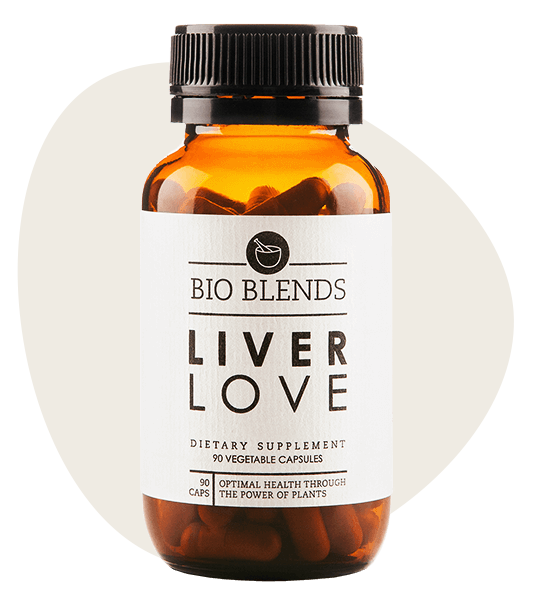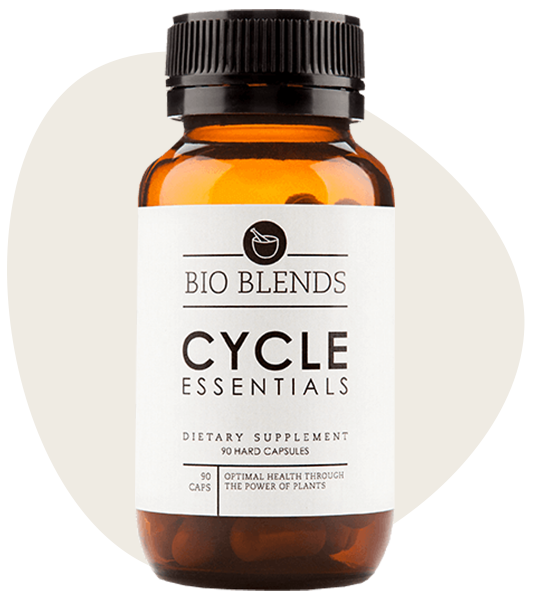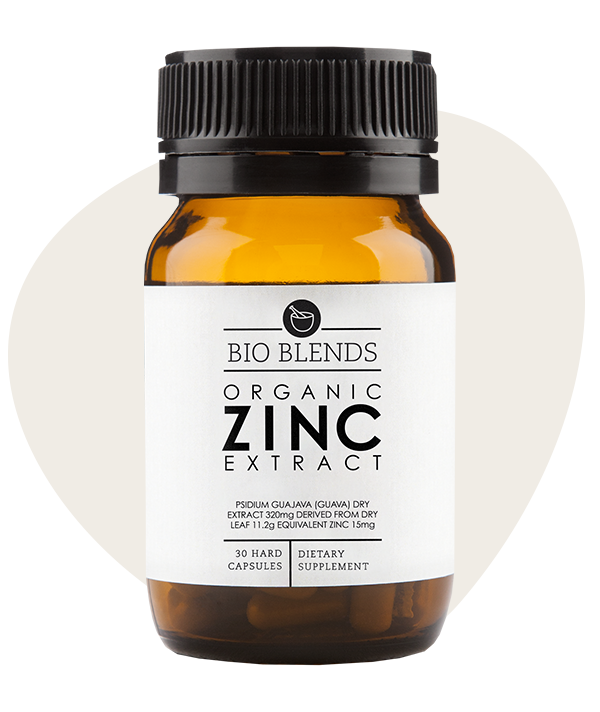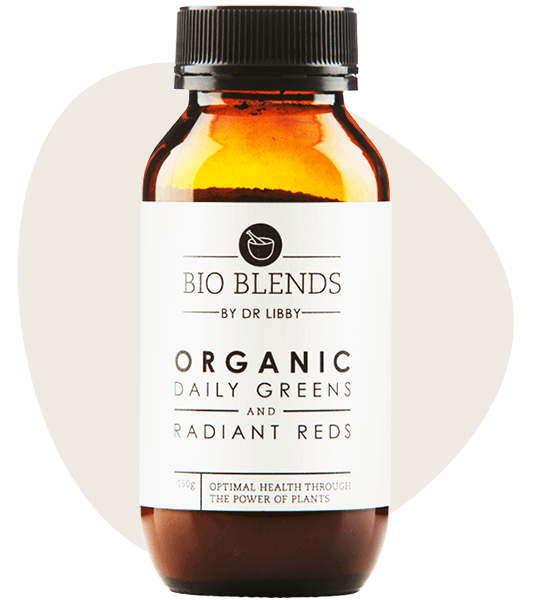As you now know, even though period problems are common, they’re not ‘normal’ – we aren’t supposed to suffer in a debilitating way. Hopefully by now, you’ve watched the Period Problems workshop and have a better understanding of the intricate balance of each body system and the impact they can have on our cycle.
This blog is all about unravelling some of the reasons behind many common period problems so that you’re better equipped to take effective steps towards alleviating them.
Experiencing headaches or migraines, particularly in the luteal phase in the lead up to your period, is often due to too much estrogen and not enough progesterone, at a time when progesterone is supposed to rule the roost. If the headaches are related to excess estrogen, this is typically due to impaired liver detoxification pathways. This essentially means that your liver isn’t processing substances your body no longer requires as efficiently as it could be. If they are driven by low progesterone, stress hormones are the often the culprit so support for the whole endocrine system can be highly beneficial. Tension can also contribute to headaches, restricting blood flow.
You can support your body by increasing your intake of anti-inflammatory fats, which can be found in foods such as oily fish, flaxseeds and walnuts. Reducing alcohol also helps. Tackling the root cause of your premenstrual headaches involves balancing sex hormones and this is where the beneficial properties of medicinal herbs can truly shine.
Try: Liver Love for excess estrogen and Cycle Essentials for low progesterone, adrenal and thyroid support.
Many women experience an insatiable appetite in the days leading up to their period, often accompanied by sugar cravings or a tendency toward emotional eating.
Such shifts in appetite may be attributed to imbalances in sex hormones or the way sex hormones influence insulin and blood glucose. Low levels of progesterone, which acts as an anti-anxiety agent and antidepressant, can impact poorly on our mood. For numerous women, a low emotional state may trigger emotional eating.
If this resonates with you, ensure your protein intake is adequate across the day and consider augmenting your intake of nutritious fats. These can provide longer-lasting satiety and assist in stabilising blood sugar levels, thereby helping you sidestep the rollercoaster of blood sugar fluctuations that can follow sugar consumption.
Try: Cycle Essentials for low progesterone.
Experiencing cramps and that heavy dragging feeling in the lead-up to or during your period can be intensely distressing. These symptoms can at times, be attributed to menstrual blood clots, which are commonly linked to an excess of estrogen and a sign that more liver support is required.
To regulate excessive estrogen levels, it’s beneficial to support your liver in processing old forms of estrogen that may be circulating. Additionally, ensuring cyclic ovulation for progesterone levels can help balance the intricate interplay between estrogen and progesterone that happens throughout your monthly cycle. Incorporating sufficient magnesium into your diet can also be advantageous, as this nutrient aids in muscle relaxation and can contribute to easing the intensity of cramps.
Try: Liver Love for excess estrogen and Cycle Essentials cyclic ovulation and hence progesterone production.
If you notice acne or pimples accompanying your period, particularly around your jawline, this could signify an imbalance in your estrogen and progesterone levels or elevated levels of androgens. It can also be indicative of zinc insufficiency.
Balancing these sex hormones is critical, but typically, your liver and digestive system may also require extra support. These systems play a vital role in the detoxification and elimination of our sex hormones and other waste products. We don’t want our skin to have to serve as an alternative route for the body to expel these substances.
Try: Liver Love and Zinc.
Swollen or sore breasts in the lead up to menstruation can indicate excess estrogen and/or low progesterone.
You may like to address your perceptions of stress and urgency, as the body’s natural response to stress can impede the adrenal glands’ production of progesterone, as well as disrupt ovulation (after which, the bulk of our progesterone is made). Even a hectic lifestyle with little to no downtime can trigger this stress response. Breast tenderness can also be a sign of iodine deficiency.
Try: Liver Love for excess estrogen and Cycle Essentials as this contains kelp as a source of iodine and Calm Restore to soothe the stressed nervous system.
Mood fluctuations during your menstrual cycle can make you feel like you’re on an emotional rollercoaster, transitioning rapidly from joy to sadness to irritability and anger. These drastic shifts in mood often result from a combination of low progesterone, high estrogen, and high cortisol levels, a stress hormone. Zinc is a great mood stabiliser so this can also help.
To nurture your body, mind, and soul, adopt restorative practices like ‘low and slow’ breathing, yoga, Qi gong and meditation. Reducing stress hormone production helps our other hormones to be better balanced. Additionally, eliminating caffeine from your diet could yield substantial benefits—consider trialling this for two menstrual cycles to observe its effects on you.
Try: Cycle Essentials and Calm Restore and Zinc.
While it’s not possible to gain three kilos of body fat in a day, for women experiencing fluid retention, it can certainly feel that way. Fluid retention around your period can be attributed to various factors, including inadequate progesterone production, sluggish lymphatic flow, mineral deficiencies, or a congested liver.
To alleviate fluid retention, it’s essential to ensure adequate progesterone production, as this hormone, among its other functions, acts as a diuretic, aiding your body in eliminating excess fluid. To boost your lymphatic flow, consider gently dry brushing your skin before showering along with low and slow breathing regularly throughout each day, and enrich your diet with leafy greens.
Try: Cycle Essentials and Liver Love and Organic Daily Greens.
If you can’t seem to get a handle on when your period will show up as it is different each month — or if your period is coming as frequently as every 23 days or extends out past 32 days, it’s highly likely you’re not making enough progesterone. Estrogen could be high, low or normal. Ensure you’re consuming enough of the foods that contain the nutrients needed to build your sex hormones (see email 2 in this series) and consider whether stress, anxiousness or constant worrying may be contributing to consistently elevated stress hormones, interfering with good reproductive hormone production.
If the time between bleeds is particularly lengthy – more than two months, for example, it’s likely you’re not ovulating. Seek to understand why you might not be ovulating as the why really matters. That’s because it will determine the next best steps for you. A long time between periods can indicate Hypothalamic Amenorrhea (HA), PCOS, perimenopause or simply a reflection of high stress. HA can be the result of under-eating and/or over-exercising and addressing this is often a different road to restoring ovulation for someone with PCOS, which usually requires high androgens and insulin resistance to be addressed to foster ovulation. This is a prime example of one of the catch phrases of my work: the road in is the road out.
To nurture your body, mind, and soul, adopt restorative practices like ‘low and slow’ breathing, yoga, Qi gong and meditation. Reducing stress hormone production helps our other hormones to be better balanced. Additionally, eliminating caffeine from your diet could yield substantial benefits—consider trialling this for two menstrual cycles to observe its effects on you.
Try: Cycle Essentials and Calm Restore and Zinc.
Remember, the symptoms our body manifests are its way of communicating that it needs additional care and support.
Noticeable symptom relief often requires around two menstrual cycles to occur, so it’s crucial to remain consistent in providing your body with the support it needs.
We trust the insights shared above will help you understand where your body may need bolstering and that the recommended products can aid in restoring your body to a more comfortable state.






